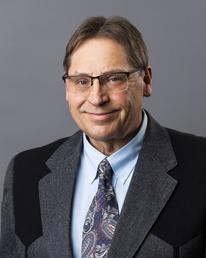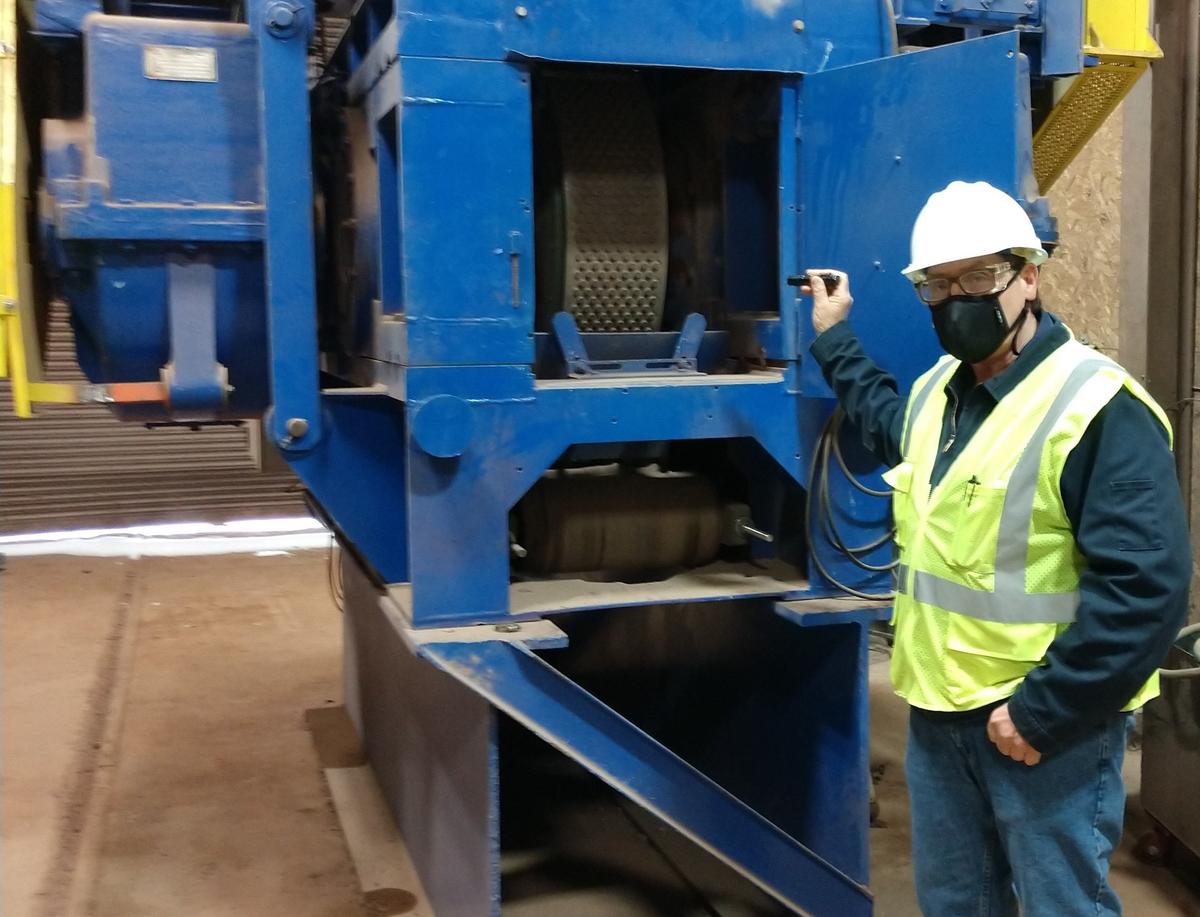He came to NRRI in 2011 with work experience at Barr Engineering Co., Eveleth Taconite and LTV Steel Mining Company where he honed is skills in process improvement and engineering, filtering maintenance, agglomerating, pelletizing, material handling and minerals processing.
And at NRRI’s pilot-scale minerals processing lab In Coleraine, all of those skills get pulled into play at some point.
“Most of the research projects I’ve worked on at NRRI Coleraine are for external clients interested in developing mineral and biomass processes and testing of process equipment,” said Mack. “This includes both bench and pilot scale tests.”
But most satisfying is his opportunity to bring new equipment to the iron ore industry that saves energy and reduces the carbon footprint. In 2019, NRRI Coleraine upgraded to new rolls on a high pressure grinding roll unit that crushes rocks for concentrating more efficiently than traditional processes.
“Lower fossil fuel requirements and lower greenhouse gas emissions from power facilities leads to a cleaner environment for future generations to enjoy,” he added.
New Iron Products

With his mining industry background, Mack brings valuable experience to flowsheet development for producing direct reduced iron (DRI) grade pellets. These higher value pellets, made from Minnesota ore resources, feed the growing electric arc steel-making furnaces in the U.S. and abroad.
“A lot of the issues that can occur in the plant might not be evident to staff who work on the bench- or pilot-scale tests or even to staff working on the development of a flowsheet,” said Mack. “But having worked in the plant, it’s really useful to have witnessed the different effects that material and equipment changes have throughout the process. Knowing the effect of a change is especially important when plants are running hundreds of tons per hour.”
Safety First
Mack also focuses his time and effort on improving environmental, quality and safety practices at NRRI Coleraine. The variety of industrial processes, equipment and materials keeps everyone on their toes.
As part of NRRI’s efforts to modernize and bring facilities up to today’s standards and practices, Mack and other engineers at NRRI work closely with UMD Facilities Management, professional engineering firms and construction contractors to execute a variety of infrastructure and building improvements projects.
Team Effort
Although the distance between the Duluth and Coleraine campuses doesn’t get any shorter, Mack appreciates all the assistance the team gets in the arenas of safety, quality, information technology, proposal submissions and purchasing.
“I appreciate the work instruction support from NRRI Quality Manager, Lisa Estepp,” said Mack. “Last year Lisa helped our team prepare and post a work instruction for adjusting the High-Pressure Grinding Rolls Minimum Gap setting that keeps the two roll surfaces from touching.”
He also leans on the safety assistance from NRRI Safety Manager, Jean Cranston, UMD Safety Professional, Andrew Kimball and NRRI Coleraine Administrative Specialist Robin Oberton.
“They prepare the monthly safety training and documentation, assist with annual Mine Safety and Health refresher training, hearing tests and respirator fit testing,” he added.
Off Hours
Mack enjoys his time off outdoors – snowshoeing or walking in the woods near his home, ice fishing and snowmobiling.
“I also like to swim at the local YMCA and visit with family and friends,” he said.
